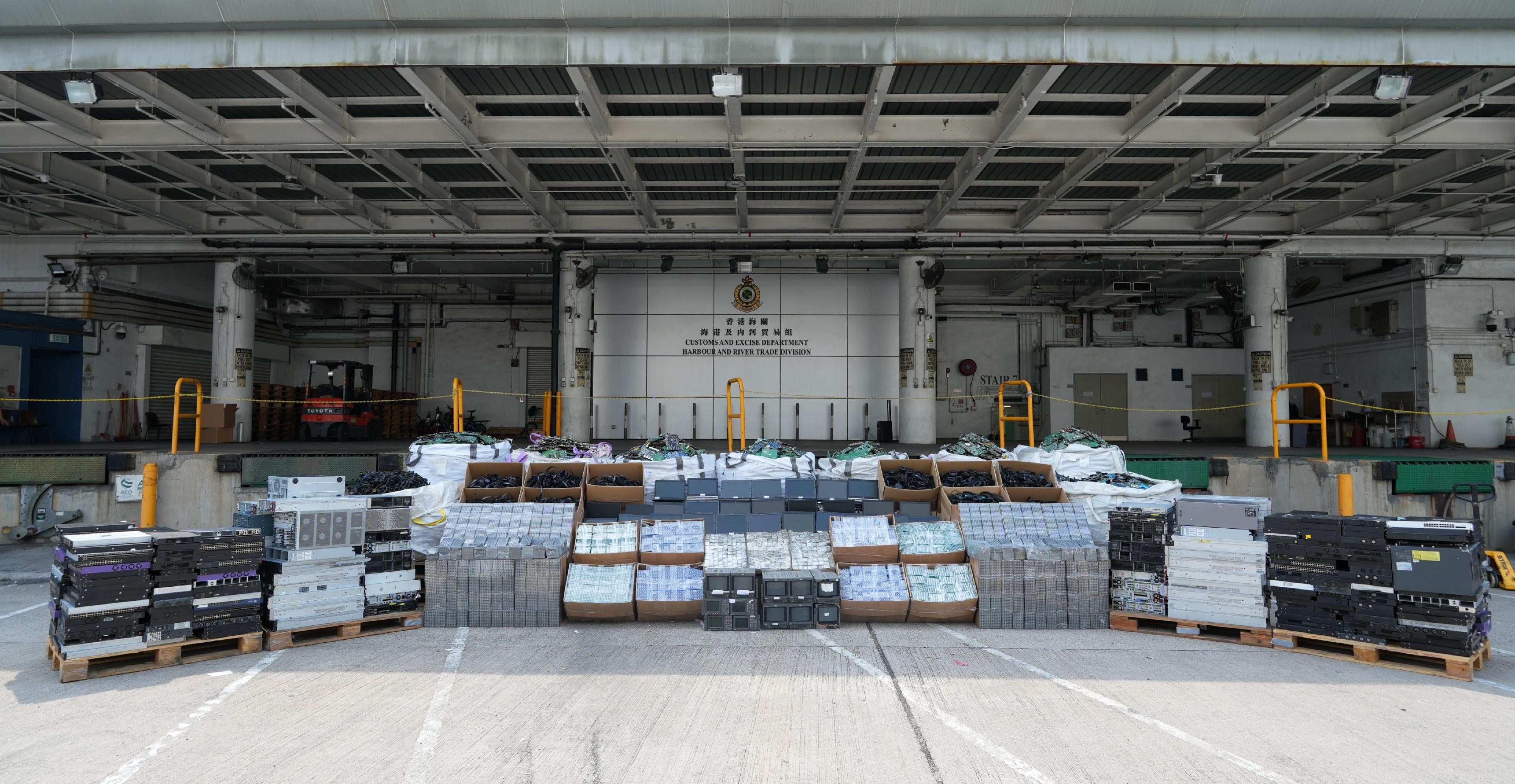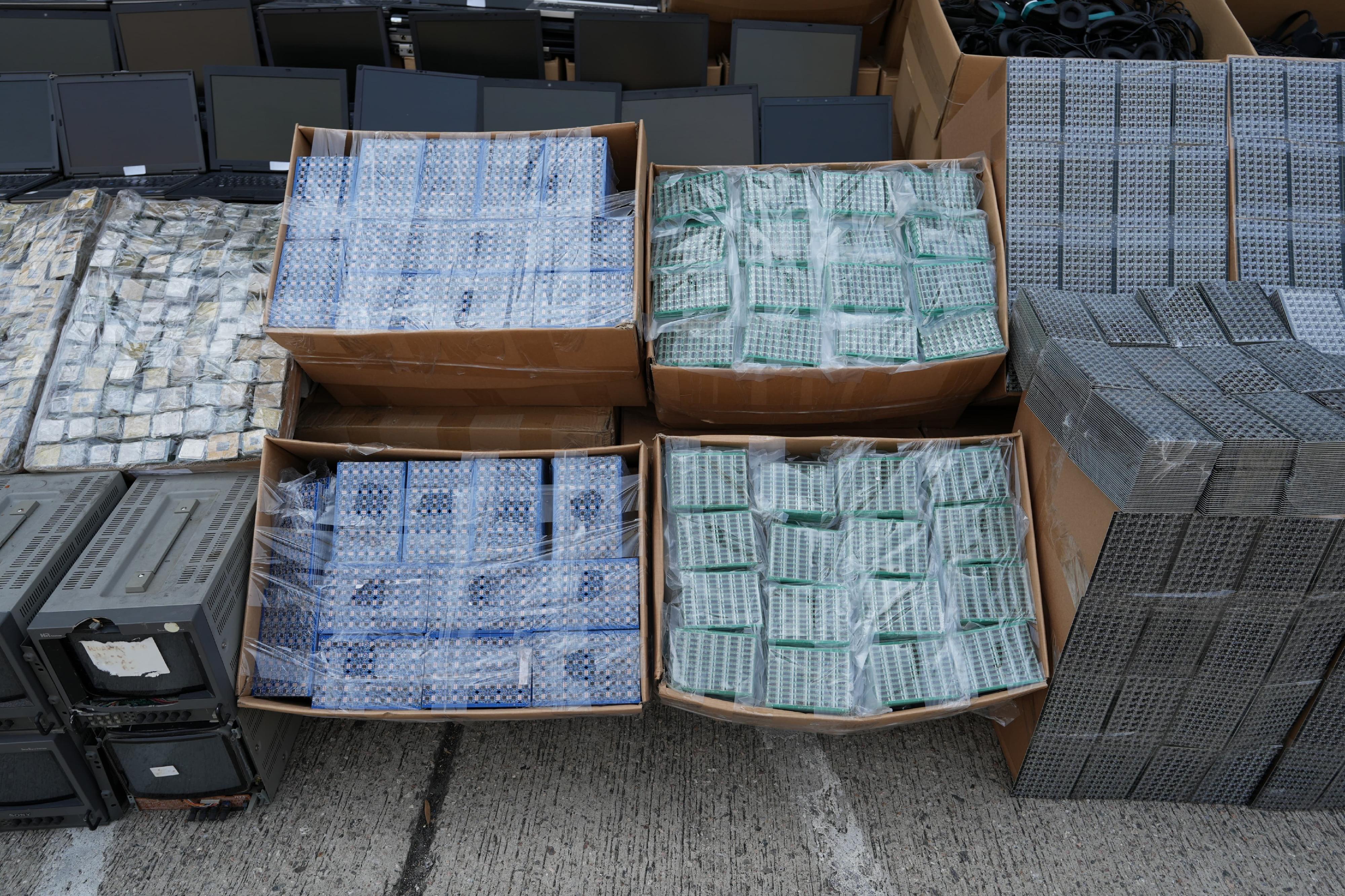Following is the English translation of the opening remarks by the Secretary for Environment and Ecology, Mr Tse Chin-wan, on environment and ecology at the special meeting of the Legislative Council Finance Committee today (April 17):
Chairman,
As the Financial Secretary emphasised in the Budget, “green development is a defining feature of high quality development”. To align with our country’s “dual carbon” goals, Hong Kong will continue to implement various decarbonisation strategies and measures, and develop green tech innovation and other industries to promote the cultivation of a green and low-carbon production mode and lifestyle, thereby endeavouring to achieve carbon neutrality before 2050 and halving carbon emissions before 2035 from the 2005 level.
In respect of innovative technology, the Green Tech Fund (GTF) has already approved 30 research and development projects, involving a total grant of about $130 million. The projects cut across a wide array of subjects, such as production and storage of hydrogen fuel. The GTF helps the industry develop environmental protection technologies with commercialisation and application values, expediting the low-carbon transformation in Hong Kong. Furthermore, we will launch the pilot scheme on building-integrated photovoltaics at the Electrical and Mechanical Services Department headquarters to explore photovoltaic technology applications on the facades of government buildings. We will also support public and private organisations to use renewable energy to help Hong Kong realise carbon neutrality.
As for new-energy transport, to continue promoting the popularisation of electric vehicles (EVs), this year’s Budget announced that the first registration tax concession arrangement for EVs will be extended for two years. We will also continue to promote the trials of new-energy transport technologies, riding on the progress made in recent years such as the commencement of services of the first hydrogen fuel cell bus in February. On infrastructure support, the number of parking spaces with charging infrastructure will jump to about 200 000 by mid-2027. We are rigorously following up with petrol filling station (PFS) operators on the latter’s plan to retrofit quick charging facilities at PFSs and will formulate a citywide green transformation roadmap for public buses and taxis within this year.
As regards the promotion of waste reduction and recycling, the first phase of regulation on disposable plastic products will be implemented on April 22, i.e. next Monday, which is Earth Day. According to the Environmental Protection Department’s (EPD) recent understanding with the trade, there is a steady and sufficient supply of non-plastic alternatives to tableware and hotel toiletries in the market, and we have recently noticed that most of the major restaurant chains have switched to alternatives or will do so from the implementation date, reflecting that the trade is well-prepared for the regulation. Upon the implementation of the new legislation, the EPD will adopt a progressive enforcement model by arranging staff to inspect relevant business premises during the six-month adaptation period, focusing on promotion and education, and providing appropriate advice to assist businesses in complying with the requirements under the new legislation.
Over a period of time, the community has expressed many views and concerns about the implementation of and arrangements for the legislation on municipal solid waste (MSW) charging. These comments are from various sectors of the community, including frontline workers, restaurants, residential care homes as well as different trades and industries. The Government has heard these voices. As a responsible and people-oriented government, we must have a clear understanding of the impact of MSW charging on different sectors of the community, and the problems associated with the introduction of MSW charging. Therefore, we have launched the Demonstration Scheme to pragmatically, thoroughly and in detail examine the problems that may arise during the implementation of MSW charging. The Deputy Chief Secretary for Administration is leading an interdepartmental steering group to oversee the work of the Demonstration Scheme as a whole and review its outcome. This will allow the Government to have a comprehensive understanding of the overall situation to pragmatically plan and take forward the next step. At the same time, the Government will continue to strengthen the support for recycling.
Last but not least, the Government is committed to conserving Hong Kong’s natural ecology and enriching visitors’ experience in the countryside. On March 1 this year, the Robin’s Nest Country Park was formally established, becoming the 25th country park. We expect the statutory procedures for designating the eighth marine park, namely the North Lantau Marine Park, would be completed this year. In addition, the Countryside Conservation Office protects the natural ecology, revitalises village architectural environments and conserves cultural resources and historical heritage in remote countrysides through implementation of the Countryside Conservation Funding Scheme and minor improvement works projects. We expect that smart countryside conservation trails will be established this year at Lai Chi Wo, Mui Tsz Lam and Kuk Po in Sha Tau Kok. We will also take forward the work for the establishment of the Wetland Conservation Parks System in the Northern Metropolis, and will first establish the Sam Po Shue Wetland Conservation Park. In this regard, the Agriculture, Fisheries and Conservation Department is conducting a strategic feasibility study which is expected to be completed in the first half of this year.
My colleagues and I are happy to listen to Members’ views and respond to questions. read more




